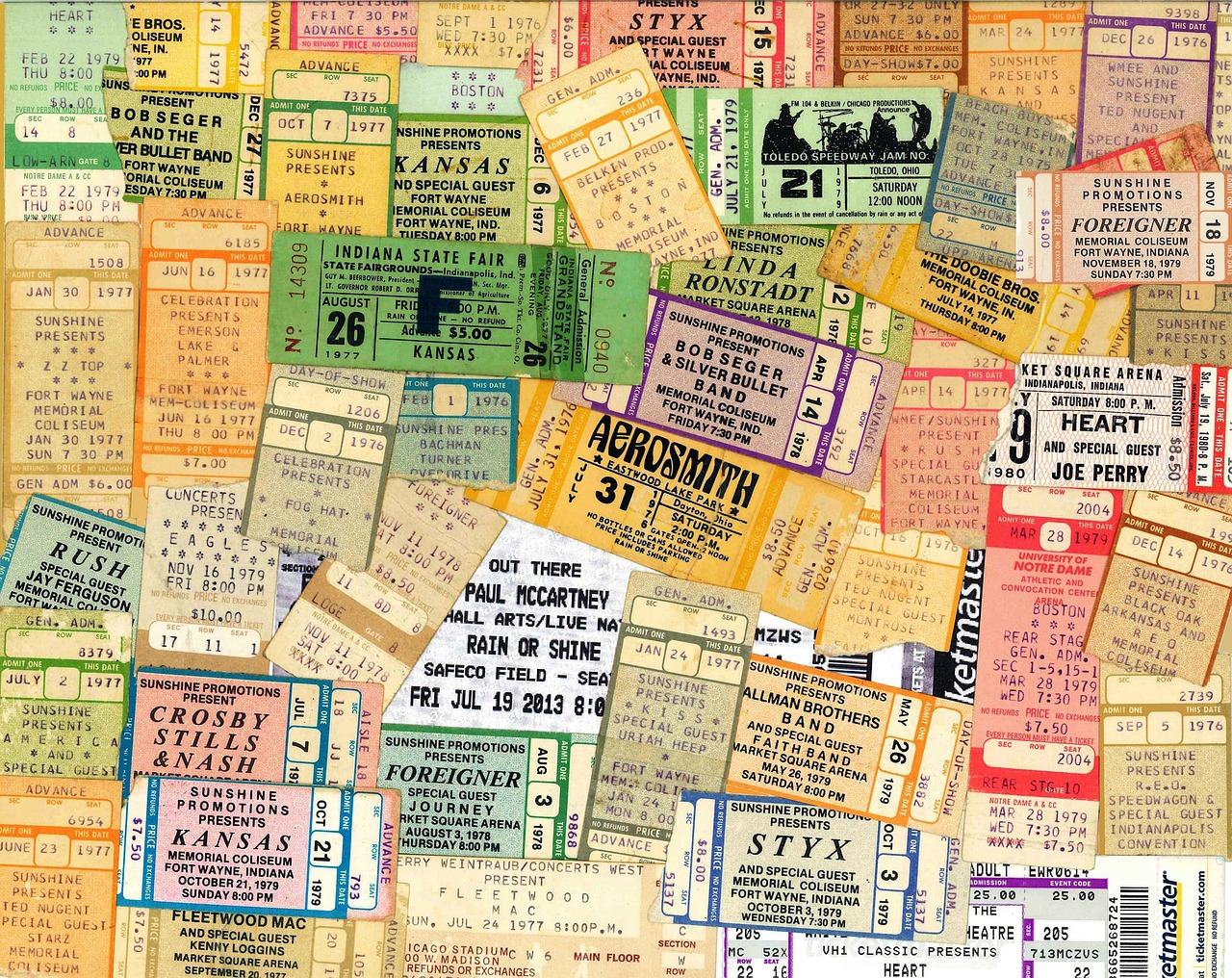Technology has taken it upon itself to battle the growing stranglehold that ticket tout (scalpers) have on the live music and sports industry.
The ticket tout industry has been estimated to be worth $1.4 billion in the UK alone, and, in the US, it is considered to be worth up to $5 billion.
Ticket prices rise at a rate much quicker than general inflation, yet people are still willing to pay extortionate fees to see their favorite acts live. One Twitter user once claimed she had spent her month’s rent budget on tickets to see Beyonce.
Furthermore, this year alone, ticket prices have risen 4.2%, compared to the same period last year. Despite this, bands and artists still struggle to break even, and many have been experiencing performance pay cuts. And this trend is further pushed by the prevalence of ticket touts.
Methods
Ticket touting has been an issue for as long as public events have been a thing and is technically legal. It used to be that touts and scalpers, or ‘secondary ticket sellers’ loitered outside of venues or stadiums looking to sell purchased tickets at a much higher markup. But now, with all the creative techniques technology have gifted us, they are turning to more convenient tricks to stockpile and sell tickets.
The most common, and perhaps most recent method, is the use of ticket bots, which involves automated software that can obtain large amounts of tickets in seconds. Through websites such as TicketBots, these touts, or alternatively ‘power sellers’, can download software that will automatically download tickets that may or may not be legitimate.
The use of bots is a method of the more high-tech variety. But should these touts find themselves unwilling to fork out the cash to purchase these programs, another way of buying multiple tickets in bulk and bypassing the quantity limit set by some websites, is to use multiple credit cards.
Not as high-tech as bots, sure, but it gets the job done, much to the detriment of legitimate fans.
And then there are ticket sharing platforms like Viagogo, where people who have bought tickets can resell them, which are often awash with spare tickets to the event of your choice, but you’ve got to pay the price.
Last year, UK singer-songwriter Adele announced her tour with tickets for the O2 Arena in London going on sale for £85, on resale websites like GetMeIn, the same ticket, for the same day, at the same venue cost upwards of £24,840. For those without a calculator on hand that is a 2900% price increase.
It’s not just live music that is a victim of the touts, sporting events, such as Wimbledon or the UEFA Champions League Final also suffer from the prominence of touts operating from their armchairs. An article by Vice exposes the price that punters are needing to pay if they want Center Court tickets. The 2016 tournament had the Men’s Final originally priced at £175, but through second-hand ticket sales, this price rose to between £3,000 and £21,000.
For the record, £21,000 can buy you: over 2,000 IKEA meatballs, a 2017 Honda Civic, and 1,000 horse masks.
Social implications
The hicked up prices the touts are asking for, have implications for society. Simply put, the Average Joe can simply not afford that kind of money for a 3 – 4 hour event. And this, in turn, has a negative effect on the live events industry.
In some cases, the markup effect coming from these resales is causing people to consider that it is just not worth it. Take football (soccer) for example. It is considered a working man’s sport. Its fans are traditionally all local boys and girls who have followed their team since they were born. Their families have followed them all their lives, and, they will hope, their children will as well.
Football match prices are high enough as it is. In the English Premier League (EPL), a season ticket to one of the big six costs between £299 and £1250. When it comes to buying second-hand tickets, this number only increases. An example of this is the Chelsea vs. West Bromwich Albion game last season, where touts were charging fans up to £1,700 for a single ticket.
Even if you are one of the lucky ones who doesn’t have to pay that much, second-hand ticket purchases can still be dangerous. One gentleman traveled from the US after spending £500 on a ticket to the 2017 Champions League Final in Cardiff, only to be told at the gate his ticket was fake.
Similar things have happened with gigs, ticket sales for Ed Sheeran’s Irish tour in 2018 have been marred by warnings from officials that those who buy second hand need to be wary of their authenticity. Furthermore, some people, such as Christopher Plant and his family felt first hand what it was like to be on the receiving end of fake tickets when they were told their passes to the musical Hamilton were in fact fake.
Solutions
But all is not lost. Whilst the reselling industry isn’t going anywhere anytime soon, artists, governments, startups and event organizers are striving to solve the problem through a plethora of different techniques.
Recently, the UK government has threatened touts who use bots to buy in bulk, with jail time to crack down on what has been described by Labour MP Sharon Hodgson as a “broken and parasitic market.”
The Fan Fair Alliance is an organization that is fighting back against ticket touts. The website includes information for artists, managers, and consumers on ways to avoid falling prey to touts and includes a testimony from ‘Viagogo Victim’ Claire Turnham on how to seek refunds should this happen to you.
The Alliance works for both the artists and the consumers. Initially funded by a number of managers that represent Mumford and Sons, Arctic Monkeys, and Laura Marling, it focuses on taking measures to ensure primary tickets are sold at no higher than face value, and support progressive technology to boost these primary sales.
There are also websites such as Songkick, which gives music fans personalized early alerts for upcoming concerts through its artist tracker feature. This platform looks to ensure that the true fans don’t miss out on seeing their favorites at a live event.
Other websites include Twickets, a ticket sharing website that encourages face-value-or-less resale for tickets to games, gigs, or theater shows. Similarly, Scarlet Mist, captioned on its website as ‘ethical ticket exchange’, offers advice on how to recognize shady ticket sellers, as well as providing updates on examples of companies, or even management teams, attempting to sell on gig tickets at a markup.
Another solution which has been implemented at festivals and more recently larger concerts is personal identification. At the world’s biggest music festival, Glastonbury, this method has been used for some time now. In 2007, organizer Michael Eavis declared that the event would be the ‘first tout free festival ever’. Those attending would need to fill out registration forms that included photo identification, and then be sent a registration number with your own personal facial image.
This method has been utilized by sports organizers, in 2009, the England and Wales Cricket board canceled thousands of tickets for the summer’s Ashes and 20/20 tournaments where buyers had tried to bend the rules and buy a large amount of tickets at once.
There have, however, been instances where this has ended up hurting the consumer. A one-off Foo Fighters concert in London’s O2 Arena last month saw hundreds of fans turned away for failing to provide a photo ID that matched their booking. Those attending who were turned away claimed they were not made aware of the policy.
Recently, bitcoin and blockchain focused startups have been devising ways to level the playing field and push the touts out of the industry. Aventus, a UK-based startup utilizes Ethereum blockchain technology to develop ticket distribution where each ticket has a unique cryptographic key, which can then be verified using Ethereum.
Also, Upgraded, from Walnut Creek, CA, has developed a mobile application that sells and distributes tickets through the Ethereum blockchain using smart contracts. This is a system whereby the buyer and his / her details are connected to the purchase. The information is unalterable, meaning ticket buyers are able to confirm the legitimacy of their tickets.
Sandy Khaund, Upgraded CEO and formerly of Microsoft, Intel, and InStadium claims Upgraded is not looking to compete with existing markets, but instead disrupt the market altogether. He said, “My goal isn’t to replace Ticketmaster or StubHub. It’s to be the Intel chip inside of ticketing. When you go to Ticketmaster, you get a drop-down that says PDF, postal service or will call. In the short term, I want to be the fourth option. In the long term, I want to be the only option. The other three options should not exist.”
What next?
Many methods have been attempted in an effort to curb the prominence of ticket touts making bank off regular fans, and it would be too optimistic to believe that these solutions will eradicate them completely. However, as the world learns more about the potential of technology to keep information secure, solutions such as photo ID, or blockchain technologies could be the start of taking the money back from the touts and putting it where it will be truly beneficial.












